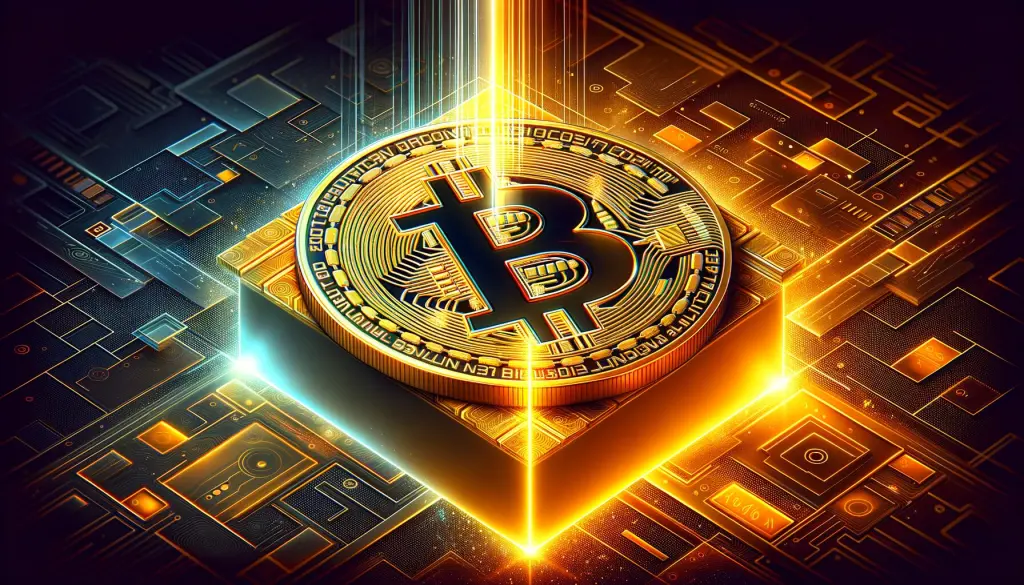In the event of a significant war, such as a Third World War, which cryptocurrencies would survive or even thrive? This is a critical issue that has arisen as the world becomes increasingly volatile, with increasing geopolitical tensions and fears of large-scale conflict.
Inflation, sanctions, surveillance, and infrastructure failure frequently disrupt conventional financial systems during periods of global conflict. Some cryptocurrencies may prove to be uniquely useful as individuals seek alternatives to fragile or authoritarian-controlled systems. However, not all digital assets are designed to withstand the stress of conflict.
In the event of a global conflict, the following cryptographic assets may prove to be indispensable.
1. **Bitcoin (BTC): The Digital Safe Haven**
**Advantages:**
* Strong store-of-value appeal and a fixed supply * High decentralization and security * Global recognition and liquidity
**The Reasons It May Succeed:**
Bitcoin has the potential to serve as the “digital gold” of a wartime economy. In countries that are experiencing inflation, the collapse of fiat currencies, or capital controls, individuals may utilize Bitcoin to transfer wealth abroad or preserve their investments. It is a highly qualified candidate due to its demonstrated resilience and autonomy from centralized control.
**Possibilities:**
The applicability of Bitcoin in crisis zones may be restricted by its price volatility and dependence on internet access. Its transactions are also traceable unless additional privacy measures are implemented.
2. **Monero (XMR): The Privacy Champion**
**Advantages:**
* Transactions that are entirely anonymous * Transactions that are challenging to trace or censor * Transactions that are not dependent on external privacy tools
**The Reasons It May Succeed:**
Privacy becomes indispensable during periods of conflict. Monero’s untraceable ledger provides safeguards against targeted censorship, sanctions enforcement, and state surveillance. It has the potential to become the preferred currency for illegal markets, dissidents, and clandestine economies.
**Risks:** Due to its anonymity, there is a higher likelihood of government restrictions or classification as illicit, as well as a lack of exchange support in numerous countries.
3. **Digital Dollar Access: Stablecoins (e.g., USDT, USDC, DAI)**
**Advantages:**
* Price stability * Familiar unit of account (USD) * Widely acknowledged in the cryptocurrency market
**The Reasons They May Succeed:**
Stablecoins provide a safe haven from the collapse of local currencies while remaining relatively user-friendly for everyday transactions. Their predictability and connection to the U.S. dollar could render them indispensable for international commerce, remittances, and savings during wartime.
**Possibilities:**
In high-surveillance environments, centralized stablecoins are susceptible to being suspended or blacklisted by their issuers.
4. **Ethereum (ETH): The Utility Powerhouse**
**Advantages:**
* Smart contract capabilities * DeFi, NFTs, and dApp ecosystem * Large developer community
**The Reasons It May Succeed:**
Decentralized finance (DeFi) systems could be powered by Ethereum in the event that banks are either restricted or fail. Ethereum-based identity services, insurance, and lending could address critical deficiencies in conflict zones with failed institutions.
**Possibilities:**
Real-world utility may be restricted in the most severely affected regions due to high fees and dependence on internet and electrical infrastructure.
5. **Zcash (ZEC): Government-Tolerant but Privacy-Optional**
**Advantages:**
* Based on robust cryptographic protocols * Supported by select regulators and exchanges * Provides optional privacy
**The Reasons It May Succeed:**
Zcash may function as a compromise between complete anonymity and complete transparency. It is more accessible than Monero, yet it still safeguards privacy when necessary, making it an ideal choice for individuals residing in semi-repressive environments.
**Possibilities:**
Users forfeit their protection if they fail to activate privacy features. Adoption is also lower than that of Monero.
6. **Lightning Network (Layer 2 on Bitcoin): Fast and Cost-Effective**
**Advantages:**
* Facilitates affordable, immediate Bitcoin transactions * Outperforms the basic Bitcoin chain in terms of scalability
**The Reasons It May Succeed:**
Fast payments with minimal fees may be indispensable in a world that is ravaged by conflict. The Lightning Network utilizes Bitcoin’s security to facilitate routine microtransactions.
**Possibilities:**
Still in the early stages of adoption, with liquidity and usability constraints.
What is of The Most Importance in Times of War?
The following characteristics are likely to be shared by cryptos that flourish in conflict:
* **Decentralization:** Resistance to censorship and shutdown * **Privacy:** Protection from surveillance and authoritarian controls * **Portability:** Usable by refugees and displaced populations * **Stability or Trust:** Either through price stability or long-term store-of-value perception * **Accessibility:** User-friendly even in the presence of stress or limited infrastructure
Conclusion: Not All Cryptocurrencies Are Created Equal
All financial systems, including decentralized ones, are subjected to a severe stress test during wartime. Not only will the cryptos that flourish be those with high market caps or hype, but they will also be those that meet genuine requirements in the most challenging environments.
The survivors of the forthcoming global crisis will be assets that effectively balance security, usability, privacy, and resilience. Bitcoin may be the driving force, but privacy coins, stablecoins, and adaptive technologies will play critical supporting roles in the transformation of the movement of value during global conflict.

Leave a Reply